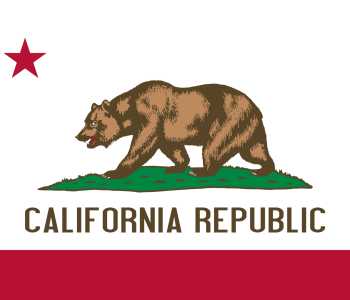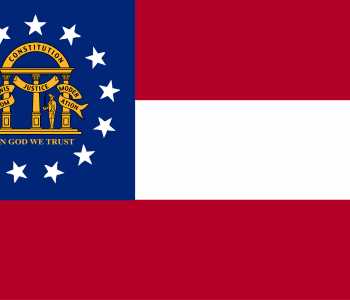Rhode-Island Business License

Small Business Information For Rhode Island
When searching for small business resources in Rhode Island, ri.gov, the official state government website contains guidance and resources, including a Starting A Business section. This section includes links to multiple other related resources for assistance and information for your business. Essential resources include the Rhode IslandSecretary Of State (SOS) and the RIEDC - the Rhode Island Economic Development Corporation. Numerous other resources are also available on the Starting A Business page.
Register Single or Multiple Company Licenses
Not all businesses in Rhode Island requires a license. However, several companies require one or more permits or licenses to operate. Aside from specific occupational and professional licenses, a company may require licenses or permits for commercial purposes or to sell restricted items. Information regarding commercial permits issued by the Commercial Licensing & Racing & Athletics is available on the Department of Business Regulation (DBR) website for Rhode Island. Some sales-related licenses require business application and registration. This form is available for download at the Rhode Island Division of Taxation site.
In addition to state or federal licensing requirements, some companies may need local licenses to operate. Requirements range by town or city. For instance, Providence, the capital of Rhode Island, requires many businesses to have permissions to work in the city. City websites typically provide information on local licensing requirements. Some companies may be exempt under federal or state law.
Put Your Records on File
In addition to procuring all needed permits and licenses, records of your company must also get filed with all appropriate agencies. LLC's, Corporations, and other types of proprietorships must put their organizational records on file with the Secretary of State (SOS) in Rhode Island. To learn more, visit the Secretary of State website and click on the Business Filings category.
If you have specific questions about your filing status, filing requirements, and other business-related matters, seek the advice and guidance of a trusted legal professional or business consultant.
Secure Profession Licenses
Many professions and occupations could require additional licensing to operate in Rhode Island. If you are unsure whether your trade or profession is one of them, check the Professional License Renewal page on the official ri.gov website. This page offers general licensing requirements for industries that require oversight by additional regulatory boards, agencies, and commissions. The DBR also provides links to industry-specific organizational resources.
Assumed or Fictitious Business Name Registration
These days, many businesses incorporate their company using one name, but then use other named entities to conduct business. This approach to doing business is commonly known as operating under an assumed name, a fictitious name, a registered name, or a DBA (for Doing Business As.)
Under an assumed name, company owners can use different business names while operating under the umbrella of one corporate entity. Companies who manage multiple locations, numerous franchises, or have a network of related businesses get the benefit of streamlining their operations under one more significant company name.
The ability to operate in the manner helps by using one corporate or business entity to handle the finances and details of multiple operations more efficiently. Instead of setting up numerous entities for each branch, one corporate body manages all them, reducing costs, expenses, and associated overhead. As you can imagine, this is advantageous for small business owners in Rhode Island.
In the State of Rhode Island, LLC, corporations, and limited partnerships with intentions to operate using an assumed name have to record the DBA name with the Secretary of State. Additionally, this name might also require filing the name with local agencies. For additional information on state filing requirements, visit the Availability page found on the Secretary of State website.
Trademark or Service Mark Registration
Intellectual property plays a critical role in brand recognition and marketing. Several applicable marks could apply to your business operations, including service marks, trademarks, and trade names. Generally, these marks help to identify and differentiate businesses from competitors. Logos, taglines, brand names, and even font types are eligible for trademarks. By investing in professional marks for your company, you are taking steps to protect your intellectual property from misuse or infringements. If your mark is getting used without permission or is not authorized by you, you hold recourse rights against the infringing party. Trademarks can get registered through the State of Rhode Island. Keep in mind that local registration is not a federal registration, so if you want a nationally recognized trademark, you'll need to file for federal registration.
FAQ
Do I Need a State License to Operate a Business?
Although there is not a single license that Rhode Island businesses must have, many businesses will need licensing by the state according to their business and occupational activities. This is done primarily by the Department of Business Regulation in Rhode Island. However, your business might need approvals from other state agencies. If your business is going to be selling retail products, you will need a Retail Sales Permit issued by the Department of Revenue. The First Stop Business Information Center in Rhode Island can assist you with determining what permits and licenses your business might need.
What Do I Need To Do To Register My Company?
Registering your business with the Rhode Island Secretary of State is required if your business is a corporation, professional service corporation, LLC, limited partnership, limited liability partnership, a non-profit organization, producer's cooperative, or consumer's cooperative. You will need to register your business with the Department of Revenue if you hire employees.
Are There Other Licensing Requirements To Follow?
Local businesses may need to be licensed in many municipalities. The requirements for local businesses can be varied across the state. Providence, for instance, requires that all local businesses obtain a license. All local corporations must register with the city. Cranston, on the other hand, requires that certain types of businesses be licensed depending on their business activities. Local licensing is determined by the city ordinance. It is best to check with your local government to determine what permits or licenses your business might need.
What Information Do I Need to Include On My Application?
The details required will vary depending on which license you apply for, but you should at least provide the following information:
- Full business name
- Contact information and business address
- The owner's name and contact information. In the case of corporations or partnerships, the names and addresses of the officers or partners.
- Type and nature of the business
- Federal Employer Identification Number (FEIN), available at the IRS, or the owner's social security number
- If applicable, the sales tax number
You will often need to provide documentation proving that you have met all applicable federal and state licensing or registration requirements.






